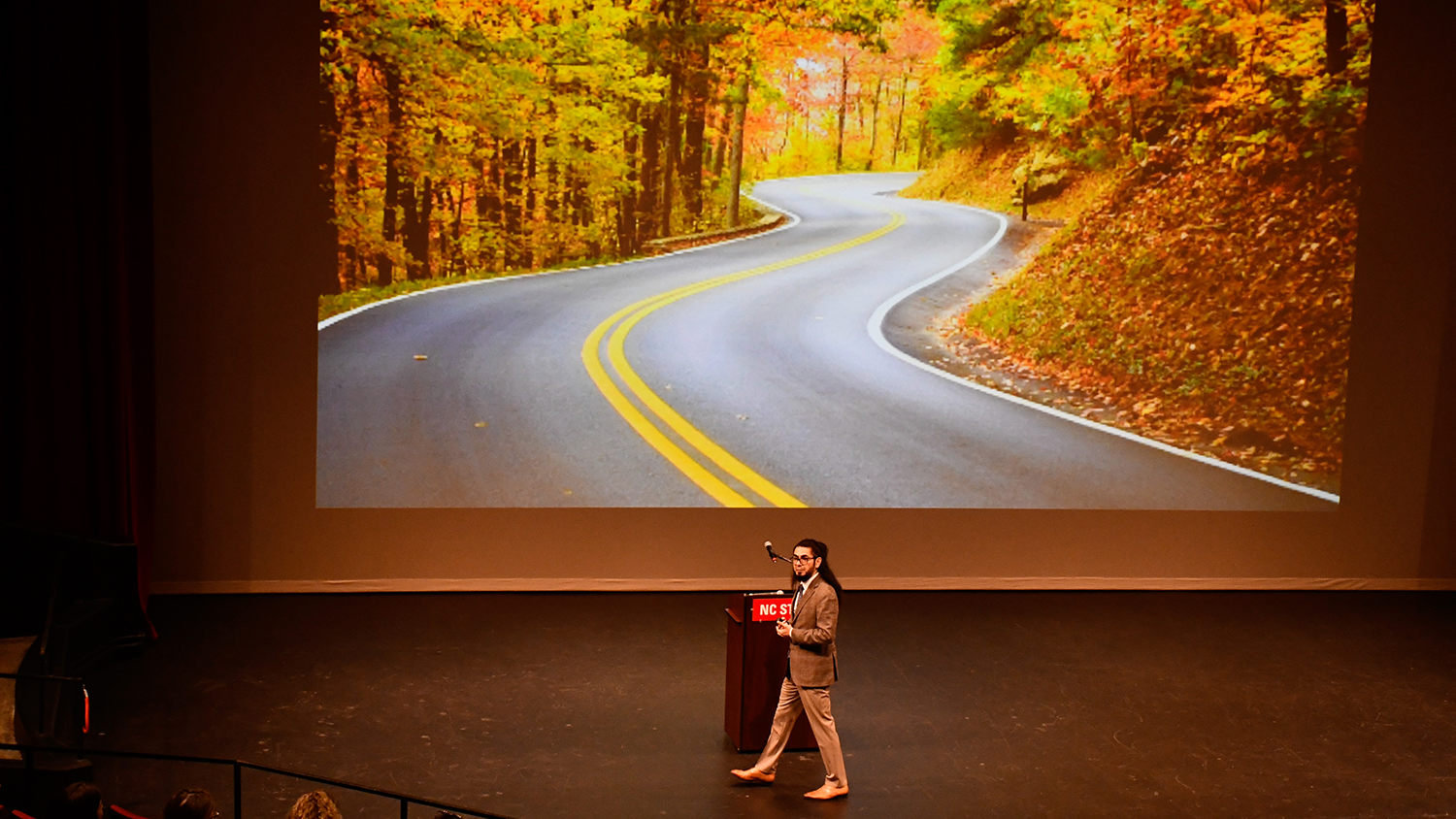Math Can be a Gateway or Gatekeeper to Opportunities: Keynote Speaker Francisco Villegas to NC Educators at 7th Annual Math Summit

Malik Richardson, a 10th grade Math II teacher at North Mecklenburg High School, traveled last year from Charlotte-Mecklenburg County to attend the Math Summit on NC State’s campus. He was eager to return again this year because he knew there was still more to learn.
“I’m here to be inspired, motivated and see what’s going on in other districts,” he said.
Richardson was one of 974 North Carolina educators who registered to attend the 7th annual Math Summit, held Aug. 8, 2023, to learn more about best practices for mathematics teaching and learning.
Now in its seventh year, the Math Summit is sponsored by the NC State College of Education and the Triangle Math Alliance, a regional consortium of the Chapel Hill-Carrboro, Durham, Johnston, Orange and Wake County public schools, and funded by the Goodnight Educational Foundation.
For some teachers, like Christy Trybus, a kindergarten teacher at Olive Chapel Elementary School in Wake County, the event was a place where she could discover new and creative ways to make learning math more fun for her young students.
For others like Eric Marsh, a 10th grade Math II and AP Statistics teacher at Wake Forest High School in Wake County, the goal was to draw on the wisdom of expert panelists and fellow educators to help his high school students.
Marsh attend the summit last year and returned this year because of the rich information shared. Though he teachers high school, he’ll attend sessions for elementary or middle school teachers “because we have to consider the loss of educational opportunities,” he said. “These talks can be really enlightening about how we can mold our teaching to adapt to the current paradigm.”
Among the speakers Marsh and other attendees heard from was Francisco Villegas, who delivered the keynote address.
Keynote Speaker Francisco Villegas: ‘You Can’t Just Raise the Bar, You Also Have to Raise Support Systems’
Growing up, Francisco Villegas faced food insecurity, homelessness and a parent who struggled with substance abuse and often behaved violently when under the influence.
Thanks to a teacher recommendation in second grade, Villegas was placed in his school’s gifted and talented program. He grew up to become an successful educator and now works as senior vice president of school transformation at the Partnership for Los Angeles Schools. His brother, Jonathan, was not as successful, struggling with substance abuse and incarceration since he was 14 years old.
Villegas believes the reason he was able to succeed, despite hardships, while his brother could not, is because a teacher believed in him.
“Let me be very clear, I’m not blaming education for what happened to Jonathan. But I am saying that education did something really special for me. It saved me,” he said.
Villegas shared how math can be a gateway or a gatekeeper to opportunities, particularly for historically underserved students, and how he worked to make sure that every child could succeed regardless of their background.
“I remember saying that I’m going into teaching with a purpose. My purpose is to prove that every child can be reached and that every child can be successful,” he said.
Like many beginning teachers, Villegas admitted he struggled during his first few years, but he eventually fought to take on the AP Calculus course at his school when he heard colleagues commiserating about the challenges they faced in reaching certain students.
By the end of his first year teaching that course, he had more students —many of whom were experiencing poverty like he once did—pass the exam than had ever passed in the school’s history. He built from there, helping mathematics teachers in the school align their instruction so all students were being prepared in the same way and adding additional Advanced Placement courses.
Successes like these, he reminded educators, would not be possible without collaboration between colleagues.
“That collaboration, that building of collective efficacy as teachers, that’s one of the most powerful things we do because, if we’re in our classrooms by ourselves, each trying to help a different group of students that comes into our classrooms, we’re missing a great opportunity,” he said. “The way that we should be thinking about students that come to our school is that they are all our students. We are all responsible for them and when we start thinking that way, great magic begins to happen. Powerful things begin to happen.”
The magic, however, can’t happen without teachers holding their students to high expectations and offering effective instruction and a high-quality curriculum, while also ensuring that they are prioritizing relevance, positive identity cultivation and motivation for their students.
Without supporting students in being able to identify themselves as a mathematician—supporting them as a second-grade teacher once did for Villegas—they won’t be able to meet the high standards that are set for them.
“You can’t just raise the bar, you also have to raise support systems. You have to set the bar high and then think about what it’s going to take to help every single one of these students reach those expectations and those needs might be different,” Villegas said. “The math is important, the pedagogical practice is important, the curriculum is important but creating a welcoming, inclusive environment is equally important.”
- Categories:


